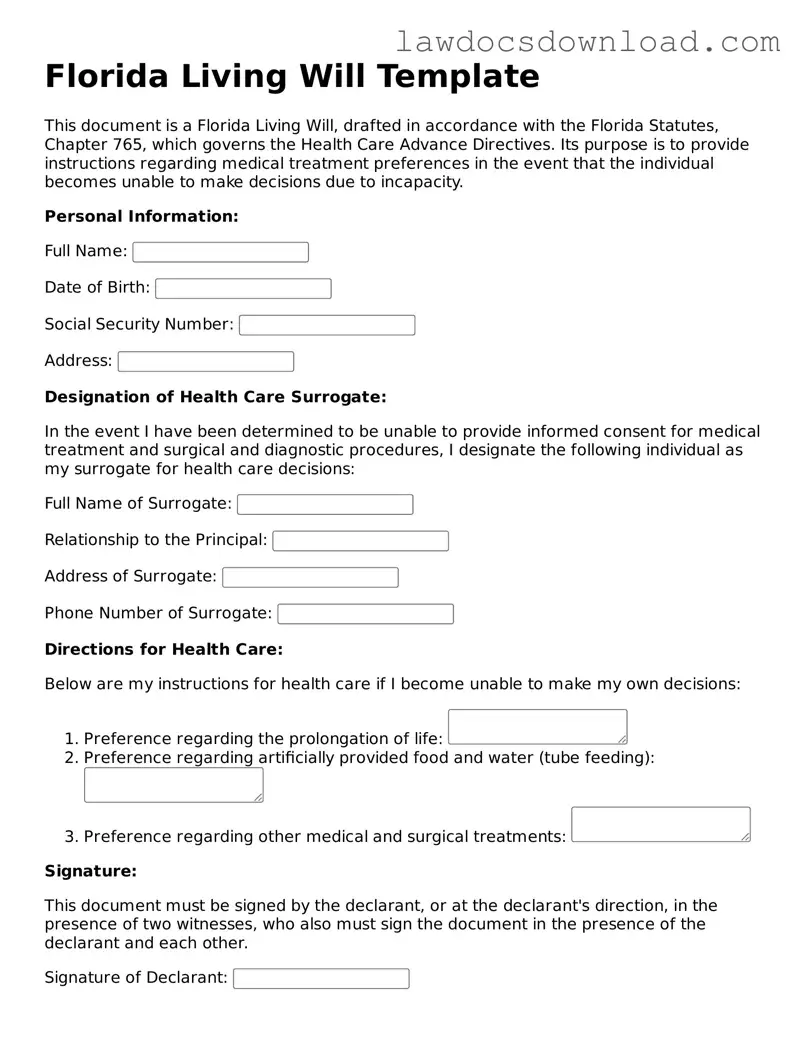Legal Florida Living Will Form
A Florida Living Will form is a legal document that lets individuals outline their preferences for medical care in the event they become unable to communicate their decisions due to illness or incapacity. This form is crucial for ensuring that healthcare providers and family members are aware of one's end-of-life care wishes. It serves as a guide for decisions on medical treatments and interventions.
Launch Living Will Editor Here

Legal Florida Living Will Form
Launch Living Will Editor Here

Launch Living Will Editor Here
or
Free Living Will
Get this form done in minutes
Complete your Living Will online and download the final PDF.